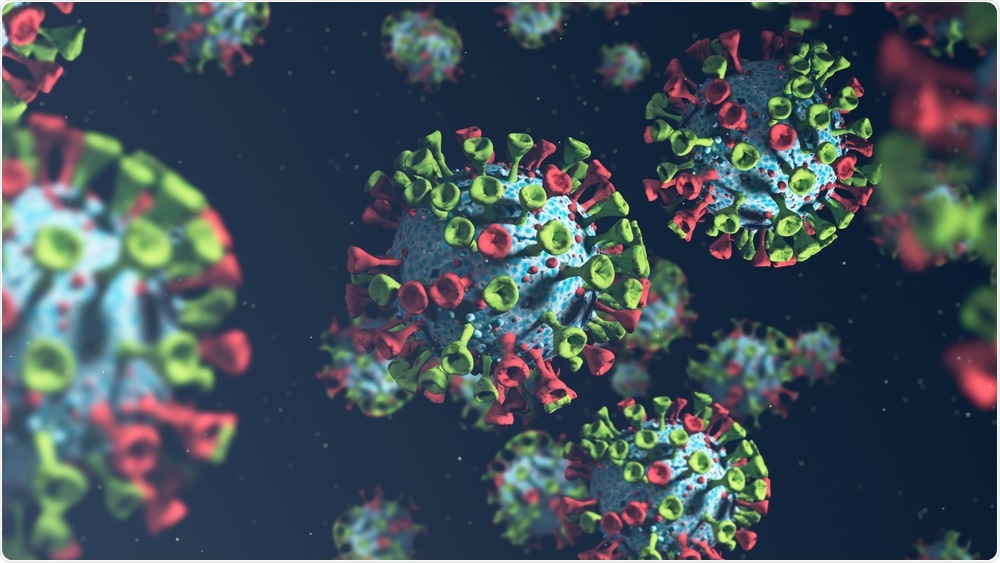A new approach focusing on cellular repair may be an effective strategy to address the pandemic.
Since the end of 2019 over 150 million cases of COVID-19 worldwide, causing the death of 3 million people. In response, considerable efforts have been directed towards developing effective treatments including diagnostic tests, vaccination programs, and long-term data gathering.
In a new study, a team of researchers from the United Kingdom and Switzerland led by Cambridge scientist Liliana Echavarrı ́a Consuegra found that the signaling pathway called the 'unfolded protein response' (UPR) is fully activated in lab-grown cells infected with SARS-CoV-2. These findings published in the journal PLOS Pathogens are key to developing effective treatment as inhibiting the UPR to restore normal cell function using drugs was also found to significantly reduce the spread of the virus.
Once infected, the virus that causes COVID-19 invades host cells and uses them to replicate, putting cells under stress and damaging them. Most approaches currently target the virus infection itself using antiviral drugs, but Cambridge scientists have switched focus to combat the infection using the body's cellular response to the virus instead.
Researchers characterized the global changes in the translatome and transcriptome host during murine coronavirus (MHV) and SARS-CoV-2 infection of human lung cells using RNA sequencing (RNASeq) and ribosome profiling (RiboSeq).
The scientists found that all three branches of the three-pronged UPR response pathway were highly upregulated, and that individual over-expression of SARS-CoV-2 ORF8 and S proteins is sufficient to induce the UPR.
Taking it a step further, the scientists then applied pharmacological treatments, specifically Ceapin-A7 and KIRA8, to target this pathway, which resulted in a drastic reduction of virus replication.
The virus that causes COVID-19 activates a response in our cells - called the UPR - that enables it to replicate. Using drugs we were able to reverse the activation of this specific cellular pathway, and remarkably this reduced virus production inside the cells almost completely, which means the infection could not spread to other cells. This has exciting potential as an anti-viral strategy against SARS-CoV-2."
Dr. Nerea Irigoyen, University of Cambridge's Department of Pathology
Unexpectedly, the findings showed that treatment with two drugs together simultaneously target two prongs of the UPR pathway reduced virus production in the cells by 99.5%. This is the first study to show that combining two drugs has a much greater effect on virus replication in cells than a single one.

SARS-CoV-2. Image Credit: Jezper/Shutterstock.com
Milder symptoms and better recovery
Using this different gene expression approach, the researchers were able to detail the transcriptomic response to SARS-CoV-2 infection. The application of the antiviral drugs then provided key insight into limiting viral spread.
Although this treatment would not prevent infection from coronavirus, the researchers confirm that symptoms would be considerably milder and recovery time would be increased. This is particularly important as this would benefit individuals at high risk that require treatments for both infection limitation and post-infection recovery treatment.
Antiviral treatments currently used to treat COVID-19 infection, including remdesivir, focus on limiting the replication of the virus itself but if the virus evolves resistance to such drugs, they will no longer have any effect. This is of particular concern when developing antiviral treatments in the longer term as viruses are known to rapidly adapt and evolve against immunological barriers and pharmacological treatments.
In contrast, the new treatment developed from the present study targets the response of the infected cells, which would not change even if new variants of the virus emerge since the virus requires this cellular response to replicate.
Further insights into UPRs and application effectiveness
Researchers are now pushing towards testing the treatment in mouse models to confirm the effectiveness of the treatment. Human trials will only commence once the required phases are successfully passed, but results so far show the treatment may be a promising candidate.
Additionally, the scientists also want to examine whether this new antiviral approach works against other viruses and illnesses. UPR inhibitor drugs have already been developed to tackle these diseases cancer and neurodegenerative disorders as the UPR is also activated in these disorders. Increasing the range of potential applications could provide a new approach to targeting harmful diseases such as pulmonary fibrosis.
Nevertheless, the present findings now show that these pharmacological compounds can significantly reduce SARS_CoV-2 replication.
We hope this discovery will enable the development of a broad-spectrum antiviral drug, effective in treating infections with other viruses as well as SARS-CoV-2. We've already found it has an effect on Zika virus too. It has the potential to have a huge impact,"
Dr. Irigoyen
Source:
- Echavarrı ́a-Consuegra L, Cook GM, Busnadiego I, Lefèvre C, Keep S, Brown K, et al.
(2021) Manipulation of the unfolded protein response: A pharmacological strategy against coronavirus infection. PLoS Pathog 17(6):e1009644. https://doi.org/10.1371/journal.ppat.1009644